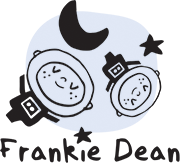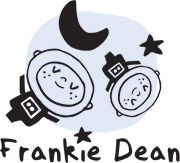Parents
Cognitive- This refers to how your baby sees the world and learns to think. This will happen over time as your child learns to use their imagination, problem solve, organize and process information, recall memories, and create judgement.
Communication- This refers to the type of language and cues your child will use to let you know they need something, when they feel hurt or scared, and when they want to express their emotions to you.
Emotional- This refers to how your baby feels, how they engage with you and others, their ability to self soothe, and their individual personality.
Physical- This refers to your baby’s growth and development with physical attributes and how your baby meets each individual milestone.
0-2 Months:
Cognitive- Your baby will begin to track with their eyes, cry, act fussy, and stare at faces.
Communication- Your baby will make coos as well as turn their head toward sounds.
Emotional- Your baby will focus on faces and try to smile and can bring their hands to their mouth.
Physical- Your baby will begin to hold up their head and push up during tummy time.
Our cuddly tips:
- Talk, read, and sing to your baby.
- Play peek-a-boo.
- Practice tummy time.
- Give lots of affirmation when your baby makes sounds or smiles.
- Hold a toy or rattle above their head and encourage them to reach.
2-4 Months:
Cognitive- Your baby will respond to affection, recognize familiar people, let you know when they are happy or sad, and use their hands and eyes together.
Communication- Your baby will begin to babble, and cries to show hunger or tiredness.
Emotional- Baby begins to model some movements and facial expressions, and smiles spontaneously at familiar faces.
Physical- Your baby should begin to hold their head stable while unsupported. They may even be able to roll from tummy to back and push up on their elbows when lying on their stomach.
Our cuddly tips:
- Model the sounds of your baby and see their reaction.
- Give lots of affirmation and show excitement when your baby smiles and makes sounds.
- Have special reading and music time with your baby.
- Try and hold your baby upright with their feet on the floor while singing and see if they will support themselves.
4-6 Months:
Cognitive- Baby will bring things to their mouth and begin to explore their environment with touch and feel. They will look around the room at things other than what is right in front of them.
Communication- Your baby will respond to sounds and their own name by making sounds and cooing. They will also start to babble and make consonant sounds like “m” and “b.”
Emotional- Your baby will begin to look at themselves in the mirror. They begin to notice familiar faces and differentiate when someone is a stranger or unfamiliar.
Physical- Your baby will begin to sit with support, roll over in both directions, and support weight on both legs.
Our cuddly tips:
- Read to your child every day. Don’t forget the continuous affirmation- babies love this.
- Try to play on the floor with your baby daily. Getting down to their level will build confidence and give them support.
- Show your baby things around your home, explaining each item to them. They will learn from repetition and seeing things continuously.
6-9 Months:
Cognitive- Your baby will begin to pick things up and hold them between their index finger and thumb, put things in their mouths, and transfer things from one hand to the other.
Communication- Your baby will begin to copy sounds and gestures, understands the word “no,” and will begin to point at things with their fingers.
Emotional- Your baby may start to get attached to you around other adults and strangers.
Physical- Your baby will begin to start crawling, sit without support, and can get from tummy to a seated position.
Our cuddly tips:
- Read and talk to your baby.
- Continue to teach them about things in your home and surrounding environment.
-Keep your baby on a routine. This will help keep their anxiety levels down and help maintain consistent napping/feeding schedules.
- Keep your baby feeling comfortable by identifying the activities they enjoy and the ones they dislike.
1 Year:
Cognitive- Your baby will begin to explore their environment more by shaking, banging, and throwing things. They will start to follow simple directions and get more involved with their daily activities.
Communication- Your baby will try to say words that you say. They will respond to simple requests when verbalized.
Emotional- Your baby will begin to experience separation anxiety and cry when you leave their view. They will love to play games, so be sure to keep things interesting. They will also repeat sounds and activities to get attention.
Physical- Your baby may stand alone on their own two feet and may even take a few steps without holding onto anything.
Our cuddly tips:
- While you are doing activities or your daily chores include your child by explaining to them what you are doing.
- Play with blocks, stacking rings, and imagination boards to encourage your child to use their hands.
- Encourage your child to sing, dance, and be silly.
- Continue to give your child lots of affirmation, hugs, and kisses.
18 Months:
Cognitive- Your baby will begin to recognize things that are used in daily life; a toothbrush, soap, spoon and fork. They will start to use their imagination during play time with toys and dolls.
Communication- They will begin to point at something they want or point at you to get your attention.
Emotional- Your baby will give proper attention to familiar faces and shy away from those they do not know in hesitation. They will begin to explore, but will look back to be sure that someone safe to them is around.
Physical- Begins to use utensils while eating; a spoon or fork. They will balance better with help and start to run on their own.
Our cuddly tips:
- Begin to allow them to help around the house with everyday tasks and chores.
- Sit with them as they work on coloring books and crayons to ensure they don’t munch on them or doodle on your walls.
- Let them play outside with balls and bubbles.
- Pop-up books are great for teaching and learning.
2 Years:
Cognitive- They begin to recognize shapes and colors. Your baby can build a tower with blocks. They can find items you may instruct them to find.
Communication- Your baby will say sentences in 2-3 words. They will point to characters or items in books and try to repeat what you have said. They may begin to refuse things and say the word “no” more often.
Emotional- Able to play next to other children at the park and will even engage with shared toys and the play space.
Physical- Your child will jump up and down on furniture and start to run.
Our cuddly tips:
- Teach your child about animals, cars, body parts, and things in their environment.
- Play hide and seek with your child’s toys.
- Be sure to give them lots of praise when they follow instructions.
3 Years:
Cognitive- Your child will be able to color without much supervision and draw a circle and a square. They will be able to sit with a book and turn the pages.
Communication- Talks well enough to understand them most of the time. They can name most of the familiar things in their environment.
Emotional- They do not like when the routine changes or deviates from the normal schedule.
Physical- They will be able to climb, run, throw a ball, and ride a scooter/tricycle.
Our cuddly tips:
- Be patient with your child and work with them when they are struggling with a project or puzzle.
- Allow your child to play freely outside with mild structure for safety.
- Count things with your child and turn it into a game using your fingers and toes.
- Read to your child often.
4 years:
Cognitive- Your child will start to understand time and when something is the same and when it is different.
Communication- They will begin to sing a song or say a phrase from memory. They will also enjoy telling stories about things that occurred during their day.
Emotional- Your child will enjoy exploring and trying new things in addition to having play time with mom, dad, and people closest to them.
Physical- They will be able to cut their own food, pour their own drink, and mix food items together all with adult supervision.
Our cuddly tips:
- Give them toys and games to play that will help build their imagination. You might have to play with them to show them from time to time what it looks like to pretend.
- Dance time is always fun so teach them how to boogie.
- When you read to your child, once the book is done, ask if they can explain to you what happened in the story.
- If your child is struggling with something, give them the space to try and figure it out. Stay nearby for safety.
5 Years:
Cognitive- Your child will be able to count to ten and count ten things in their environment. They will also be able to write a few letters and numbers on their own.
Communication- They can say and spell their name and address. They are able to tell you a story while speaking clearly.
Emotional- They are aware of differences in the children and people around them. They show joy during playtime, story time, and while singing and dancing.
Physical- They will be able to do a somersault, swing, and climb. They are also able to use the bathroom on their own.
Our cuddly tips:
- Arrange playdates at the park and their friend’s homes.
- Teach them the days of the week and the difference between morning and evening.
- Talk to them about safe and unsafe areas of the body and teach consent.
- Teach them how to put things together, play on the monkey bars, and share with others.


